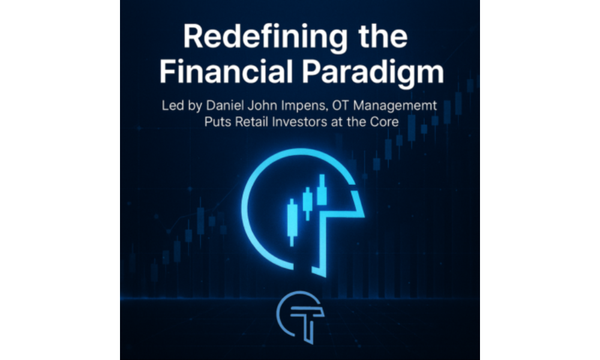The Challenges Faced by Decentralized Autonomous Organizations
Decentralized autonomous organizations (DAOs) have emerged as a new organizational model enabled by blockchain technology. DAOs are member-owned communities with no central leadership. Decisions are made through a transparent voting process executed on the blockchain. While DAOs offer many potential benefits like transparency, flexibility, and community governance, they also come with unique challenges.
In this article, we will explore the key challenges faced by DAOs and how they may be addressed.
Introduction
DAOs represent a radical shift from traditional hierarchical organizations. By eliminating central control, DAOs aim to foster transparency, decentralization, and community ownership. However, this disintermediated structure also introduces new complexities.
DAO members must coordinate and make collective decisions without traditional leadership. Effective governance is essential but difficult to achieve. DAOs must also ensure security - as decentralized systems, they are prime hacking targets. The immutable nature of blockchains poses additional challenges for adapting to changing needs.
Despite these hurdles, DAOs offer an intriguing organizational model that is likely to evolve and improve over time. Understanding the core challenges they face today provides insights into how DAOs can succeed long-term.
Establishing Effective Governance
Perhaps the biggest challenge for DAOs is establishing effective governance. Traditional organizations have hierarchical systems of control and leadership to guide decision-making. DAOs reject central control in favor of collective governance.
DAOs must develop governance models that facilitate coordination and democratic decision-making for a dispersed membership. This may involve implementing reputation systems, voting mechanisms, and conflict resolution protocols.
However, governance rules encoded on the blockchain are difficult to change later. DAOs must strike a careful balance between enforceable rules and flexibility. Achieving this complex governance at scale remains an obstacle.
Preventing Security Breaches
DAOs operate on open blockchains like Ethereum, which introduces security vulnerabilities. The decentralized nature of DAOs means there is no centralized entity responsible for security.
This can lead to incidents like the famous DAO hack in 2016, which exploited a vulnerability in The DAO's code to siphon $60 million in funds. Smart contracts powering DAOs must be meticulously audited for vulnerabilities before deployment.
DAO platforms are also experimenting with new security models like modular smart contracts. But security remains an ongoing challenge as hackers target vulnerabilities in uncharted territory.
Adapting to Change
The transparency and immutability of blockchains pose challenges when DAOs need to adapt to change. Ratifying new proposals and upgrading a DAO is much more complex than passing top-down mandates in traditional organizations.
Modifying foundational rules requires coordinated decisions from the DAO's membership according to preset governance processes. This makes iterative improvements and pivots difficult. DAOs must plan comprehensive rules and mechanisms to enact change from the outset.
Bridging On-Chain and Off-Chain Activity
While DAOs use on-chain governance, much of their activity occurs off-chain through communication channels like Discord and chat apps. This creates potential synchronization issues between on-chain governance protocols and off-chain discussions and activities.
Integrating these disparate channels seamlessly is key for effective governance. Platforms like Aragon offer integrations between messaging apps and on-chain governance to close this gap. As DAOs grow, minimizing friction between on-chain and off-chain activity will be critical.
Achieving Mainstream Adoption
For all their innovation, DAOs remain quite niche. Mass adoption will depend on overcoming usability challenges for less tech-savvy users. The learning curve for participating in autonomous distributed governance is steep. Most current DAO users also tend to be tokenized stakeholders rather than traditional members.
Platforms will need to simplify governance mechanisms and onboarding processes to enable mainstream adoption. User-friendly interfaces, accessible educational resources, and clear value propositions for non-tokenized members will be key. Solving these issues could propel decentralized governance beyond crypto-native circles.
"DAOs represent uncharted territory filled with opportunity and risks. The challenges are formidable but so is the potential."
- Vitalik Buterin, Cofounder of Ethereum
Some potential solutions for overcoming key challenges include:
- Modular and customizable governance protocols
- Multi-layer governance with on-chain and off-chain components
- Constitution DAOS for governing base-layer protocols
- Security audits and bug bounty programs
- User-friendly interfaces and educational platforms
Building functional DAOs is a truly novel undertaking. Much experimentation with governance protocols, security models, and adoption incentives will be needed. But the payoff in terms of organizational effectiveness, innovation, and community alignment makes overcoming these hurdles well worth the effort.
Can Incentive Alignment Solve DAO Challenges?
Effective incentive structures are foundational for organizations. But designing incentives that align with decentralized values poses unique challenges. How can DAOs create incentives that encourage behaviors like active governance while discouraging apathy and self-interest? Solutions like staking rewards and reputation systems are a starting point but still often advantage tokenholders over general members. Truly aligning incentives around “skin in the game” and collective ownership remains an open design challenge.
How Can DAOs Balance Transparency with Privacy?
DAOs aim for transparency but members may desire privacy in certain contexts. How can DAOs simultaneously guarantee anonymity while preserving integrity? Are private voting mechanisms compatible with radical transparency? There are no easy answers. DAOs will likely need to take a nuanced approach - maintaining transparency around rules and processes while offering privacy when appropriate. Experimenting with zero-knowledge proofs and encryption may offer solutions to balance the two.
Conclusion
DAOs represent a bold new frontier in organizational structure - one that comes with substantial growing pains. From governance to security to incentive alignment, DAOs must navigate uncharted territory. But these challenges present an opportunity to reinvent organizations in a fairer, more decentralized way.
The solutions DAO pioneers develop today will pave the way for the next generation of community-owned organizations. By proactively addressing these issues, DAOs can lead us towards that exciting future.




